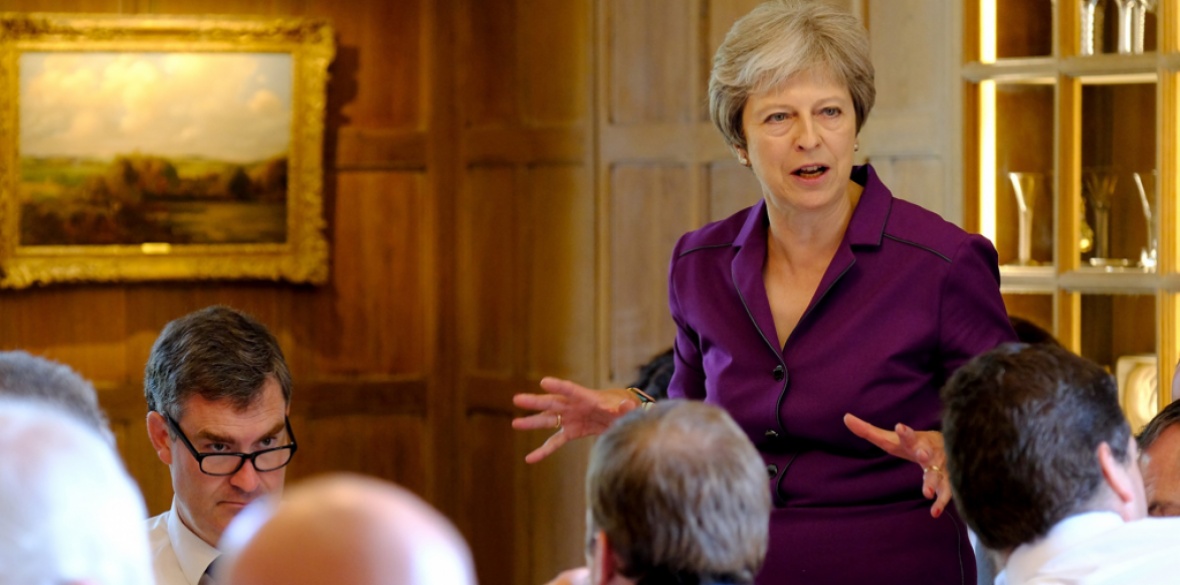This is the last article you can read this month
You can read more article this month
You can read more articles this month
Sorry your limit is up for this month
Reset on:
Please help support the Morning Star by subscribing here
As Labour frontbenchers made clear this weekend, the compromise on the EU reached by the Tory Cabinet on Friday is unlikely to last very long.
Important questions remain unanswered, although some matters may be clarified when yet another White Paper is published.
In terms of class politics, the Financial Times was in no doubt about the content of the agreement.
Its front page lead story on Saturday began: “Theresa May has won approval at an all-day Chequers summit for a pro-business plan to keep Britain intimately bound to the EU single market and customs union, beating back Eurosceptic cabinet opposition to her new ‘soft’ Brexit strategy.”
The Prime Minister’s scheme is for a “UK-EU free trade area” based on a common rulebook for industrial and agricultural products.
The rules would be set by the EU, but Britain could opt out of new ones in future and risk EU retaliation.
There would be no free trade arrangement on services and therefore no “regulatory alignment.”
Financial institutions in the City of London would no longer be automatically “passported” to sell their services to other European customers.
However, nor would they be subject to future EU regulations that might impinge on their current prerogatives.
More than four-fifths of City business comes from inside Britain or outside the EU and banks will continue to have the option of establishing subsidiaries inside the post-Brexit EU.
The second strand of May and Chancellor Hammond’s scheme is for a “business-friendly customs model” with an open north-south Irish border.
Britain would collect and transfer EU tariffs on goods entering the UK but bound for the EU.
EU officials have already poured scorn on the security and practicality of such a “facilitated customs arrangement.”
They are determined to ignore the EU Parliament’s constitutional affairs committee whose “Smart Border 2.0” report last November outlined the technology that makes such an arrangement possible.
Unelected EU officials and pro-EU politicians in Ireland and Britain prefer to play on fears of a hard border that nobody but the EU itself would contemplate.
The extent to which the Cabinet’s customs model would limit the scope of future British trade agreements with the US, China, India or elsewhere is not at all clear.
What is clear, though, is that EU negotiators will continue to be emboldened by all support in Britain for a “soft Brexit,” which actually means no exit from EU single market rules policed by powerful unelected EU institutions.
On past form, Michel Barnier and his chief string-puller EU Commission president Jean-Claude Juncker will object to any sectoral free trade scheme.
They want comprehensive subjection to a European single market, with no privileges for City bankers.
They would also seek a “common rulebook” that continues to outlaw state aid to industry, inhibits public-sector monopolies, protects the free movement of capital and maintains the VAT strait-jacket.
They understand that any customs model allowing significant trade freedom could undermine the whole “Fortress Europe” set-up.
Britain could import goods at lower tariffs, to the benefit both of home consumers and Third World producers.
Free from EU and US restrictions, we could export a range of hi-tech goods and services to China and Russia.
The labour movement’s “red lines” should be clear. To support investment, trade and jobs, we need a Labour government with the freedom outside the EU to implement its left and progressive policies.
As shadow international trade secretary Barry Gardiner pointed out yesterday, the alternative is not merely to tie the hands of any Labour government but to undermine democracy itself by reneging on the referendum result.











